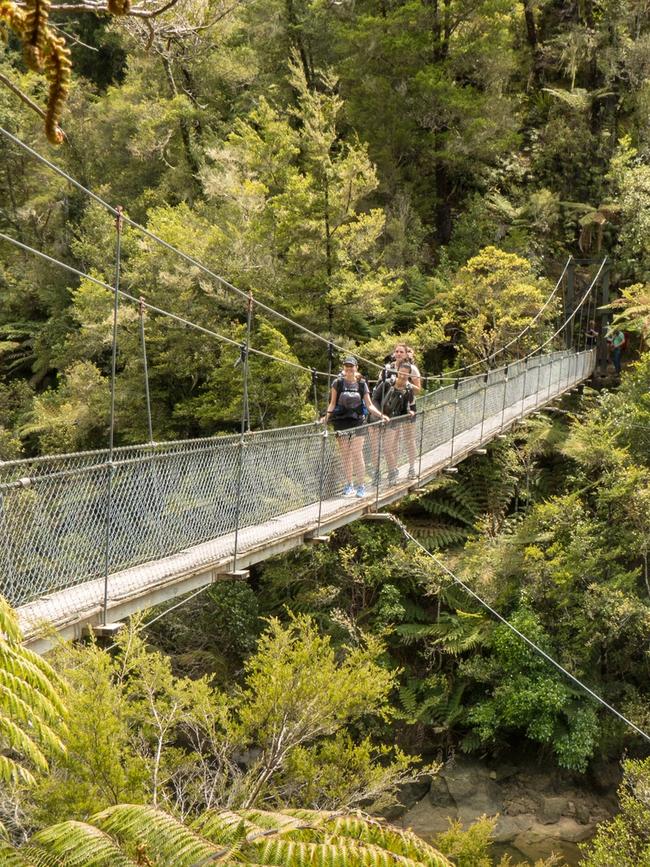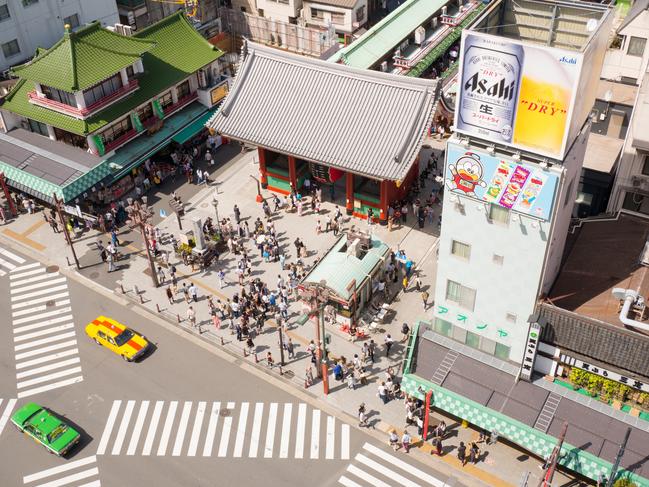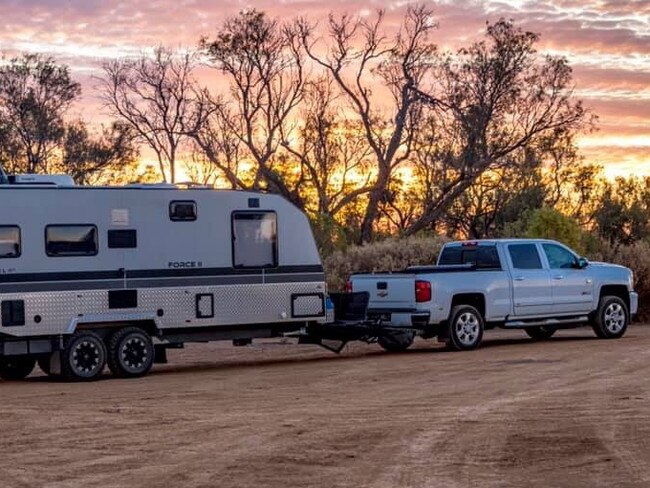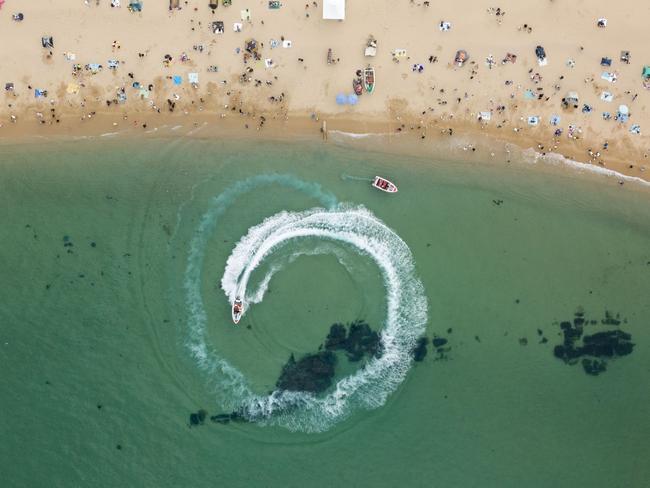Overseas travel could be on the cards for Aussies mid-2021, tourism industry expert says
Australians could be soon relaxing on beaches on the Pacific Islands as the government explores more ‘bubble’ agreements allowing travel between COVID-safe countries.
Coronavirus
Don't miss out on the headlines from Coronavirus. Followed categories will be added to My News.
Australians could soon be relaxing on a beach in Fiji, with the government reportedly backing a move to include the Pacific Island nation in the ‘trans-Tasman bubble’.
Australia’s High Commissioner to Fiji, John Feakes, told RNZ that there was a plan to include Fiji “very quickly” after the deal is secured with New Zealand to allow travel.
Fiji Attorney-General Aiyaz Sayed-Khaiyum told the Fiji Sun said Pacific Island nations should be included in the bubble on a case-by-case basis.
“Pacific Island countries are different from each other, so rather than thinking that if they open up the bubble, they have to open it up to everybody.There are different experiences of different Pacific Island countries, vis-à-vis COVID-19,” he said.
Rosie Holidays managing director Tony Whitton – who runs Fiji’s largest privately owned travel company – told the ABC he was aware the Fiji Government had already reached out to Australia.
“It’s quite complex, and it’s not as easy as what you would think. But I’m very confident that we have sufficient expertise and good-hearted and intelligent people to work out how can we start getting planes and visitors back into our country,” he said.
One industry expert predicted Australia could also set up ‘bubble’ agreements with Japan, Taiwan and South Korea.
This comes after Prime Minister Scott Morrison flagged domestic travel could be reopened in time for the July school holidays, and the nation’s pubs, cafes and restaurants start to reopen as states ease restrictions and the economy reawakens.
Tourism & Transport Forum CEO Margy Osmond said overseas travel could reopen to Australian within months- but only to countries in control of their coronavirus outbreak.
It would be similar to the trans-Tasman bubble being considered by the Australian and New Zealand governments, and some European countries – like Austria, Germany and Switzerland – reopening their borders to other nations in the European Union.


Lithuania, Latvia and Estonia on Friday reopened their borders to each other; Austria plans to reopen its border with Germany on June 15; and Finland now allows entry of citizens from nations belonging to the EU’s open-border Schengen area for work-related and other necessary purposes with strict guidelines.
For Australia and New Zealand, Ms Osmond expects the trans-Tasman agreement to come into effect from September, and said nations including Taiwan, South Korea and Japan could follow with similar agreements from the start of next year.

“I think it’s too early to say what the world is going to look like but I am slightly more optimistic than other people saying overseas travel won’t start until the end of next year,” she said.
“I think we might see some Asian and pacific ports open their borders to us from the start to the middle of next year … but if there’s a second wave, that might change things.”
As Australia’s restrictions ease and intra- and interstate travel is gradually being allowed, Ms Osmond said caravanning and booking a “shack by the beach” would likely be popular Christmas period options among families rather than heading abroad.
“We have to understand the pandemic has been a real shock to the system for a lot of people and its not going to be simple for everybody to just suddenly jump back into travelling,” she said.

“Will people be able to afford going overseas given the level of unemployment now in Australia … and given many have had to use their paid leave during this period, will people have sufficient leave to take holidays?
“I think people can start planning super getaways here in Australia for the second half of this year, which is extremely sensible and absolutely the way to go.

“Australia has a great opportunity – I think this could potentially be a renaissance moment for the indigenous tourism community.”
Cruises could also be a viable option for Australians in coming months. Ms Osmond said she believed the industry would bounce back.
“It might take a little while but Australians have always been manic cruisers – it’s one of the biggest growth industries in the world,” she said.
Ms Osmond’s comments come as Prime Minister Scott Morrison said domestic travel could soon return to Australians – just in time for the July school holidays.
“We’re reminded that the net tourism imports to Australia is just over $20 billion a year. That means that, after you take account of international tourists coming here, and Australians going overseas, that there is an import, net import factor, of just over $20 billion. Now, that’s up for grabs for Australian domestic tourism operators,” he said.
EXPLAINER: WHAT AUSSIES CAN AND CANNOT DO
CAN I TRAVEL OVERSEAS?
On 24 March, Prime Minister Scott Morrison announced a ban on Australians travelling overseas under the Biosecurity Act 2015 to help prevent travellers returning to the nation with the new coronavirus.
There are limited exceptions: for example, to allow people to return home if their normal place of residence is overseas. This is managed by the Department of Home Affairs.
Other exemptions, which Australians need to apply for online, include if the travel is part of the response to the COVID-19 outbreak, essential for work or if the person needs to receive urgent medial treatment which is not available in Australia.
Travelling on compassionate or humanitarian grounds, or urgent and unavoidable personal business, and if it is in the national interest is also included.
However, even with an exemption, it could prove difficult for Australians to physically fly overseas, with a reduction in air traffic and limited flights available.
As a result of the nationwide travel ban, overseas arrivals slumped 60 per cent in March due to the virus border restrictions. It has been the largest drop ever in international visitors.
WHEN CAN I BOOK MY NEXT TRIP?
Australian Tourism Industry Council executive director Simon Westaway said earlier this month “all the signs are pointing to green shoots of domestic travel from June”.
In terms of international travel, he added “New Zealand is probably going to be the most attractive and most likely the [first] international destination to open up for Australia over the medium term”.
New Zealand became one of the first countries to lock down its border in a substantial way on March 14.
“We’re obviously close but there’s some good quarantine and customs arrangements in place and you’d think just with some health management over the top, that market could probably open up more quickly,” Mr Westaway said.
However, Flight Centre boss Graham Turner this week called for an imminent restart to some international tourism.
He said it was “devastating” to hear Australia’s Chief Medical Officer Brendan Murphy say restrictions on international travel would stay in place for “some time”.
Mr Turner argued it was likely a bilateral agreement could be reached to see travel between Australia, New Zealand and other Asian countries.
“I’m pretty confident that will be back within the next couple of months,” he said.
“Even somewhere like Vietnam … there is no reason why we shouldn’t be flying to places like that on a point-to-point basis in the next few months.”
CAN I RETURN TO AUSTRALIA FROM OVERSEAS?
The Australian Government has extended its special partnership with Qantas and Virgin Australia to help bring more Australians home.
Additional commercial flights are scheduled to depart London and Los Angeles until early June.
It follows Qantas and Virgin offering commercial flights from four key international cities in April: London, Los Angeles, Hong Kong and Auckland.
The locations were selected to provide access to the largest number of overseas Australians possible.
On May 8, the government announced it committed an additional $50 million to continue its network of international flights to help Australians return home.
Details of these flights can be accessed on the Smart Traveller website.
In addition, the government has facilitated flights from a wide range of countries where commercial flights are not available. It will continue to explore options to facilitate flights from targeted destinations in coming weeks.
The government has advised Australians planning to return home can still transit through Kuala Lumpur, Doha, Los Angeles, Paris, London or Tokyo.
WHO CAN FLY INTO AUSTRALIA?
You can travel to Australia if you are an Australian citizen, a permanent resident, an immediate family member of an Australian citizen or permanent resident or are a New Zealand citizen usually resident in Australia.
If you are an immediate family member holding a temporary visa you will need to provide the government with evidence of your relationship.
Travellers who have a compassionate or compelling reason to travel to Australia will need to have an exemption from the Australian Border Force Commissioner.
According to Smart Traveller, the Commissioner of the Australian Border Force (ABF) may consider an additional exemption in relation to the travel restrictions currently in place for:
• Foreign nationals travelling at the invitation of the Australian Commonwealth Government for the purpose of assisting in the COVID-19 response or whose entry would be in the national interest
• Critical medical services, including air ambulance and delivery of supplies, that regularly arrive into Australia from international ports
• People with critical skills (for example, medical specialists, engineers, marine pilots and crews) by exception
• Diplomats accredited to Australia and currently resident in Australia, and their immediate family
• Case-by-case exceptions for humanitarian or compassionate reasons.
Exemptions must be granted prior to travelling to Australia.
DO I HAVE TO QUARANTINE WHEN RETURNING TO AUSTRALIA?
Yes, Australians returning home must undertake a 14-day quarantine in a designated facility, such as a hotel, at the first port of arrival in the country.
Australians are reminded to factor this requirement in for any domestic travel bookings.
The quarantine period is necessary to protect Australians from COVID-19.
CAN I TRAVEL INTERSTATE?
States and territories can apply their own restrictions, including closing their state borders and additional quarantine requirements.
In Queensland, entry is temporarily prohibited unless the travel is exempt under the Chief Health Officer’s Border Restrictions Direction.
In South Australia, border control check points are operating for traffic entering the state. Non-essential travellers will still be able to enter but will be required to identify a suitable place of quarantine, travel directly to the location and self-quarantine at the location for 14 days.
In Victoria, NSW and the Australian Capital Territory, there no restrictions on leaving or entering the states at this time. However, Australians are being urged to make sure their travel is necessary.
In Western Australia, Australians cannot travel into or out of the state unless an exemption has been granted.
In Tasmania, non-essential travellers arriving in the state will be required to enter quarantine for 14 days in government provided accommodation on arrival in Tasmania. Only essential travellers who meet requirements will be exempt from this.
In the Northern Territory, strict border controls are in place.
People not eligible for exemption arriving at a Northern Territory border must complete 14 days of forced quarantine.
LATEST MEASURE ANNOUNCEMENTS
The federal government has announced a three-phase easing of coronavirus restrictions in the coming months, with states and territories to determine the timing.
The initial phase sees cafes, restaurants and shops reopen plus outdoor gatherings allowed of up to 10 people.
Five people permitted to visit other homes and up to 10 guests allowed at weddings, while funerals can have 20 mourners indoors and 30 outdoors.
Real estate home inspections and auctions can resume with a 10-person limit, while children will return to schools and child care.
Social distancing and hygiene measures will be retained.
NEW SOUTH WALES
NSW has announced it would follow phase one, but regional travel within the state is still banned.
Restrictions will ease around outdoor gatherings and cafes and restaurants from Friday.
Working from home is encouraged.
WESTERN AUSTRALIA
People are being encouraged to return to work in WA from May 18, with cafes and restaurants allowed up to 20 patrons.
Regional travel restrictions will also be eased.
SOUTH AUSTRALIA
South Australia to allow all elective surgery to resume this week. Regional accommodation to reopen, including caravan parks, hotels, motels and Airbnb services.
Alcohol-free dining with ten-person limit allowed at cafes and restaurants, and seasonal workers must self-isolate before they enter the state.
AUSTRALIAN CAPITAL TERRITORY
The ACT is allowing outdoor gatherings of up to 10 people from Saturday but dining out will not restart immediately.
NORTHERN TERRITORY
The Northern Territory has relaxed restrictions on parks, golf, fishing and swimming.
Restaurants and bars are to reopen with a two-hour limit on May 15 followed later by entertainment venues.
Internal borders restricting access to indigenous communities will remain in place until at least June 18.
QUEENSLAND
In Queensland, shopping for non-essential items is permitted while up to five members of a single household can visit other homes.
Up to 10 people will be able to congregate in parks, at pools and on playgrounds from May 16.
TASMANIA
Tasmania to ease some restrictions from this coming Monday with national parks and reserves open to residents within 30km for exercise while public gathering limits will increase to 10 people.
VICTORIA
Victorians from Wednesday are allowed to have a maximum of five visitors in their homes. Gathering limits are relaxed to 10 for outdoor activities including fishing, hiking, golf.
Weddings can have up to 10 guests.
Indoor funerals can have up to 20 people with 30 for outdoors.
Originally published as Overseas travel could be on the cards for Aussies mid-2021, tourism industry expert says


